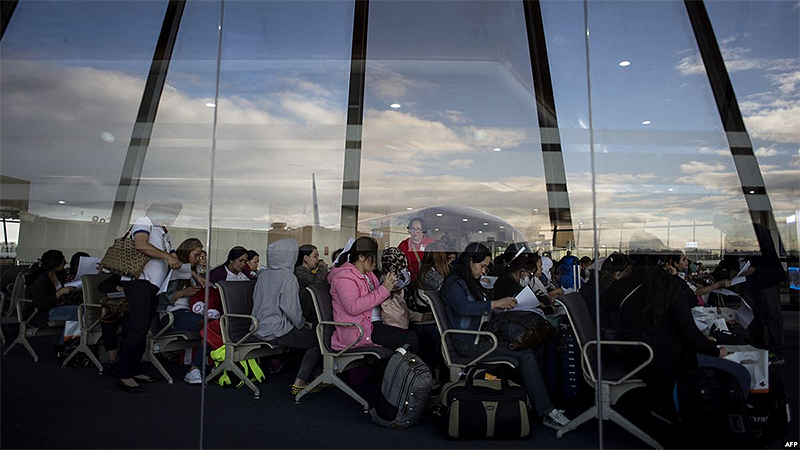16/09/2023
16/09/2023

KUWAIT CITY, Sept 16: Over 9 months have passed since the ban on sending new domestic workers from the Philippines to Kuwait, coupled with Kuwait's suspension of new visas for Filipino workers. However, a glimmer of hope has emerged with the recent statements made by Eduardo de Vega, the Undersecretary of the Philippine Ministry of Foreign Affairs. He confirmed his country's aspirations to engage in discussions with Kuwait regarding the resumption of sending workers, following a significant development in the case of the juvenile accused of killing a Filipino worker named Jullebee Ranara, which was decided upon by the Kuwaiti Juvenile Court.
In a press interview conducted two days ago, de Vega denoted the court's ruling as a "positive step" towards achieving justice for the Ranara family. He also emphasized the Philippines' acknowledgment of Kuwait's efforts in this regard. De Vega expressed his hopes for renewed dialogue with Kuwait to address the current situation and seek solutions for the return of Filipino workers, reports Al Rai Daily. He noted that depending on the sentiments of their colleagues in the Department of Migrant Workers (DMW), they could approach Kuwait to restart negotiations with the goal of eventually lifting the suspension on both sides.
Regarding the Philippine government's stance on this matter, Bassam Al-Shammari, an expert in domestic workers' affairs, regarded it as a "positive gesture" aimed at resolving the crisis between the two nations in a manner that benefits their respective populations. He viewed this step as the initial move towards addressing the issue of the shortage of domestic workers in Kuwait, which has impacted stability and equilibrium in the labor market of Kuwait.
Al-Shammari expressed hope for a concerted effort to rectify past mistakes and negative incidents that have strained relations between the two friendly countries, particularly in the domains of domestic and private employment, which have significantly disrupted the labor market.
Additionally, the owner of a domestic worker agency welcomed the statement from the Philippine Undersecretary of Foreign Affairs, considering it a glimmer of hope for resolving the crisis that has inflicted substantial losses on both nations. He highlighted the consistent demand for Filipino workers in Kuwait over the years, underscoring the challenges faced by employment agencies, and expressed optimism that negotiations would promptly resume to restore normalcy.
Three Reasons for Preferring Filipino Domestic Workers:
- Education: Filipino domestic workers are highly regarded due to their level of education, often possessing at least a secondary education and sometimes even a diploma or university degree.
- Professionalism: Filipino workers are known for their professionalism, having undergone training in the field of domestic work and often being proficient in the English language.
- Interpersonal Skills: They are recognized for their positive interactions with children and their compassionate care for the elderly. These qualities make them the preferred choice for many households in Kuwait.


